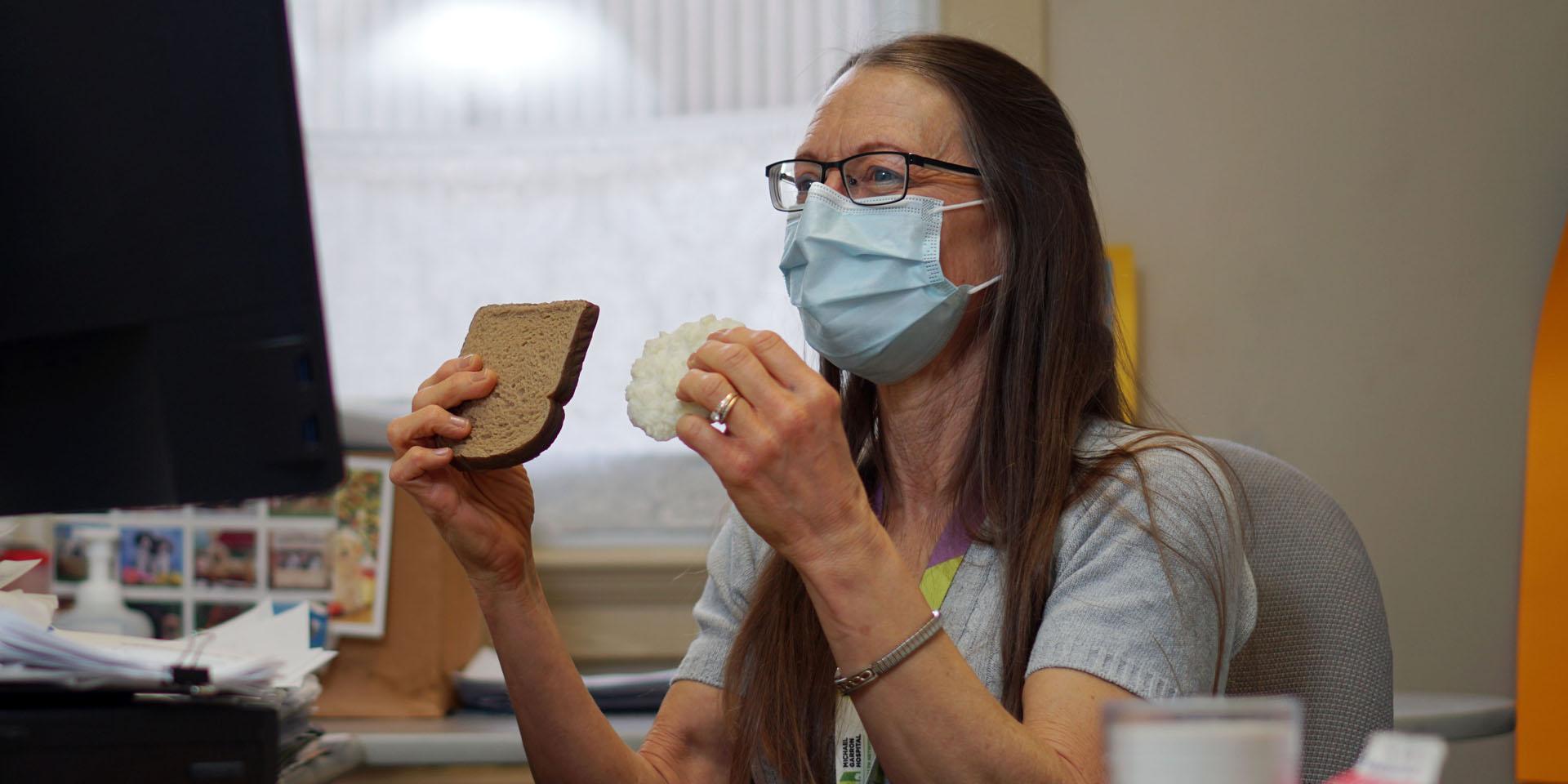MGH campus transformation
MGH’s campus transformation continues with major renovation work. Patients and visitors can expect to experience noise, hallway closures and detours around the hospital. Learn more about our campus transformation.
MGH’s campus transformation continues with major renovation work. Patients and visitors can expect to experience noise, hallway closures and detours around the hospital. Learn more about our campus transformation.

Attending in-person appointments while pregnant can be tricky, but even more so during the COVID-19 pandemic. However, for patients of Michael Garron Hospital’s (MGH) Gestational Diabetes Clinic, the clinic’s recent move to offering virtual care services is giving patients the ease and flexibility of accessing high-quality healthcare, specialized care providers and educational resources from the comfort of their own home.
“We first started offering our services virtually as a temporary option at the start of the COVID-19 pandemic,” says Audrey Shackleton, registered dietitian with the clinic. “We had no idea just how popular and successful the virtual options would become, or that our patients would be asking for them permanently.”
The Gestational Diabetes Clinic works with both individuals who have gestational diabetes (a specific type of diabetes that affects pregnant individuals in their second or third trimester) and those who have Type 1 or Type 2 diabetes and are currently pregnant.
Gestational diabetes affects between three and 20 per cent of pregnant individuals, depending on their individual risk factors. Developing the condition can increase a person’s chances of developing both Type 2 diabetes and high blood pressure later in life amongst other health conditions, and can also impact the health of the baby before birth.
In order to diagnose the condition, all pregnant individuals must undergo a glucose tolerance test between 24-28 weeks with their obstetrician. If a person’s sugar levels come back high, they’re referred to the clinic where they have access to a full team of specialized care providers including a dietitian, a nurse and an endocrinologist.
For Audrey, working in the clinic allows her to use thirty-plus years of experience as a dietitian to help patients control their blood sugars during pregnancy in order to have the best outcome for their babies.
“As a dietitian, much of my role entails helping our patients understand how food and exercise can help them balance their blood sugars and adjust their insulin doses,” she says. “Making dietary adjustments is one way of balancing those levels while making sure a person is eating enough and gaining the appropriate amount of weight. But if that doesn’t work, we can provide patients with other alternatives such as going on insulin to help manage those spikes in blood sugar while allowing them to eat adequately.”
As part of the clinic, patients are required to attend one group education class to learn about the condition and how to manage it. This class is followed by one-on-one phone appointments with each member of the clinic’s team to ensure they are getting an individual care plan.
Until March 2020, these classes and appointments were done in-person at the hospital, often meaning that patients would have to take time off work and at times find childcare and transportation to and from the hospital. However, since going virtual with classes over Zoom and hosting follow up appointments over the phone, the clinic has received immense positive feedback from patients about the ease of getting care from home.
As most Ontarians await the end of the pandemic to return to in-person activities, the team hopes to continue offering virtual services along with its original in-person appointments once the pandemic is over.
"There are aspects of in-person interactions that we most certainly miss and we encourage our patients to reach out to the educators in between appointments if they have concerns," says Audrey. "But offering these virtual services is just one way that we're keeping patient satisfaction at the core of what we do. After all, it's about what is best for them."
This story is being shared in commemoration of Nutrition Month. MGH would like to recognize and thank all of its dietitians for the incredible work they do throughout the hospital.